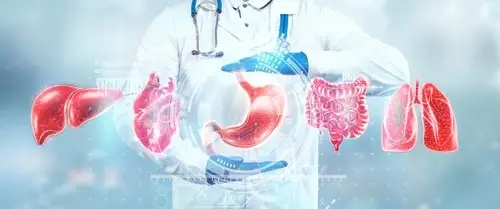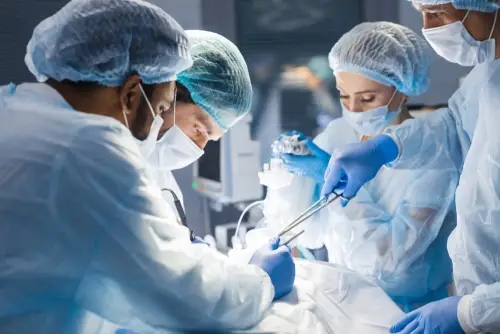
Getting Real About Donation: Can You Be an Organ and Whole Body Donor?
One common misconception when it comes to donation, in general, is that organ donation and whole-body donations are mutually exclusive. While certainly similar, there are significant differences that everyone should be aware of when choosing which one is right for you and answer one of the most frequent questions “Can you be both an organ donor and donate your body to science?”
So, let’s break down the basics first.
Organ Donation
- Liver
- Kidney
- Pancreas
- Heart
- Lung
- Intestine
- Corneas
- Middle ear
- Skin
- Bone/Bone Marrow
- Heart valves
- Connective Tissue
Organ and tissue donors are in extremely high demand with over 100,000 people waiting for an organ transplant in the US. Are those numbers not shocking enough? Well, every 10 minutes someone is added to the list and on average 22 people die daily waiting for an essential organ. One organ donor holds a lot of power though by donating their organs they can save up to eight lives, by donating their cornea they can restore sight to two people and by donating tissue they can heal up to 75 people.

Becoming an organ donor is a relatively simple process. Individuals wanting to donate can either sign up online or in person at their local DMV. Any individual can become an organ donor there are no restrictions on race, age, or medical conditions at the time of signing up. However, you do need to be at least 18 years old to register yourself, anyone under 18 would need a guardian’s consent to register depending on state laws. It is important to note that there are a few serious conditions that can prevent organ donation. These conditions include:
- Cancer
- HIV
- Diabetes
- Kidney Disease
- Heart Disease
- Sepsis/Pneumonia (at time of death)
- Hepatitis
- Dementia, Alzheimer, or Parkinson
- Autoimmune diseases
- Herpes, West Nile Virus, Rabies, etc.
Also, it is important to remember that most donations happen after donors have passed but live donations are possible as well. After the donor passes, families do not have any fees to pay for organ retrieval but are still responsible for funeral and burial costs.
Whole Body Donation
Whole body donation is a non-transplant anatomical donation of a whole body after death. Unlike organ donation, whole-body donors donate their bodies to science, that are used mostly for furthering medical education, research, gross anatomy, and surgical anatomy. Other ways whole body donation helps education and research is having a part in some major medical advancements including:
- Alzheimer’s Research
- Cancer Research
- Heart Disease
- Orthopedics
- Spinal Injuries
- Reproductive Advancements
- Respiratory Disease
Currently, there are around 200,000 people yearly who donate their bodies to science. Donor bodies are then transferred to either research centers or medical universities to aid in studying diseases, developing new medical procedures, testing new medical techniques and equipment, training surgeons, and giving hands-on education to the next generation of healthcare professionals.

Now with whole-body donation, the requirements are not as strict compared to transplant donation. Most individuals can be whole-body donors but there are some restrictions like the BMI of an individual and communicable diseases such as HIV and Hepatitis C that can disqualify someone. You can figure out if you are eligible by applying to your local whole-body donation program in your state.
Whole body donation is also becoming increasingly popular not just for the medical education and research benefits but for the fact that it is a no-cost end-of-life option. With the cost of the average funeral ranging from $7,000 – $12,000, funerals are an extreme financial and emotional stress on family members. Individuals who choose this route can offer their families some relief because these programs typically provide:
- Transportation from the location of passing to the facility.
- Cremation at no cost.
- Burial at Sea option or a No Return Option (depending on your program.)
- Return of cremated remains
So, is it possible to be both?
The short answer to this question is yes but it can depend on the program you choose and state restrictions, some programs are willing to accept organ donors, but others require them. Talk to your whole-body donation program before deciding to see what your options are.
Organ donation will take place first due to its life-saving nature and short time window for transplantation and then your body will be donated to science. If you are able to register for both, be sure to pre-register (Removed “in your lifetime”) and make your wishes known for what happens after death to be sure they are honored by both programs and loved ones.
If you are ready to donate your body to science, register with us at Research For Life. You can pre-register and receive our registration packet online which contains a welcome letter, donor prequalification form, donation authorization form, cremation authorization form, and donor registration forms. If you have any questions or concerns, feel free to contact us!

